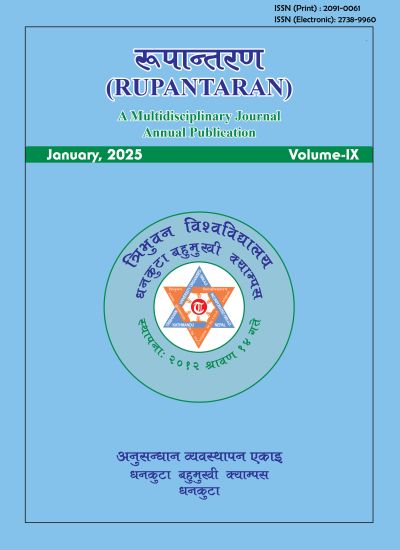Control and Resistance: A Study of Dystopia on Orwell’s Nineteen Eighty-Four
DOI:
https://doi.org/10.3126/rupantaran.v9i01.73474Keywords:
control, discipline, dystopia, resistance, totalitarianismAbstract
This article explores the life and situation of the people in an Orwellian dystopian society which is ruled and regulated by an authoritarian government. Living under such a despotic government, the dystopian people always remain in fear, terror, and panic where they lose the sense of humanity, individuality, and identity. Orwell’s classical dystopian novel portrays this kind of society in which the totalitarian government treats its subjects as if they were inferior non-humans. I also examine the government’s application of disciplinary mechanisms of control such as surveillance, propaganda, manipulation of language, and reproductive control of its citizens. Besides physical coercion, technological devices as disciplinary tools for controlling thoughts and actions are examined from the theoretical perspective of Foucauldian ‘discipline’, an idea developed in his work ‘Discipline and Punish’. Based on Foucault’s theoretical insight of power and control, I investigate how the body and mind in a dystopian society are manipulated, exploited, and regimented by the government to achieve the body’s subjection to the authority of the state. Likewise, this article attempts to expose how written narrative and an act of sexuality play a role of resistance within a dystopian society to gain liberation from control. Examining the constant conflict between the domineering state power and people’s perennial resistance, I conclude that Orwell’s Nineteen Eighty-Four is a utopia gone awry.
Downloads
Downloads
Published
How to Cite
Issue
Section
License
© Research management Cell (RMC); Dhankuta Multiple Campus, Dhankuta; Province-1, Nepal

